Презентація на тему «Learning with computer»

Theme: “Learning with computer”
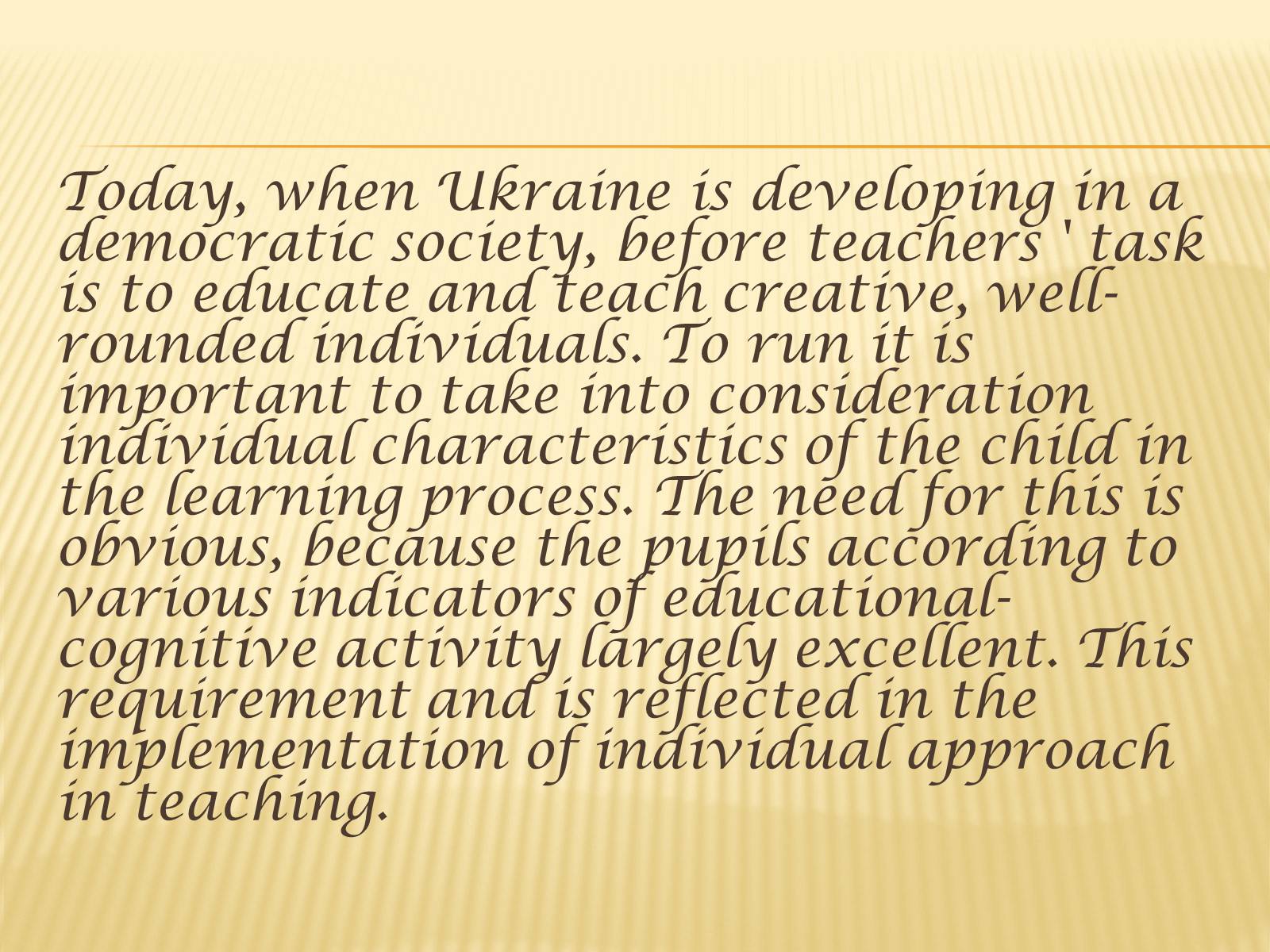
Today, when Ukraine is developing in a democratic society, before teachers ' task is to educate and teach creative, well-rounded individuals. To run it is important to take into consideration individual characteristics of the child in the learning process. The need for this is obvious, because the pupils according to various indicators of educational-cognitive activity largely excellent. This requirement and is reflected in the implementation of individual approach in teaching.
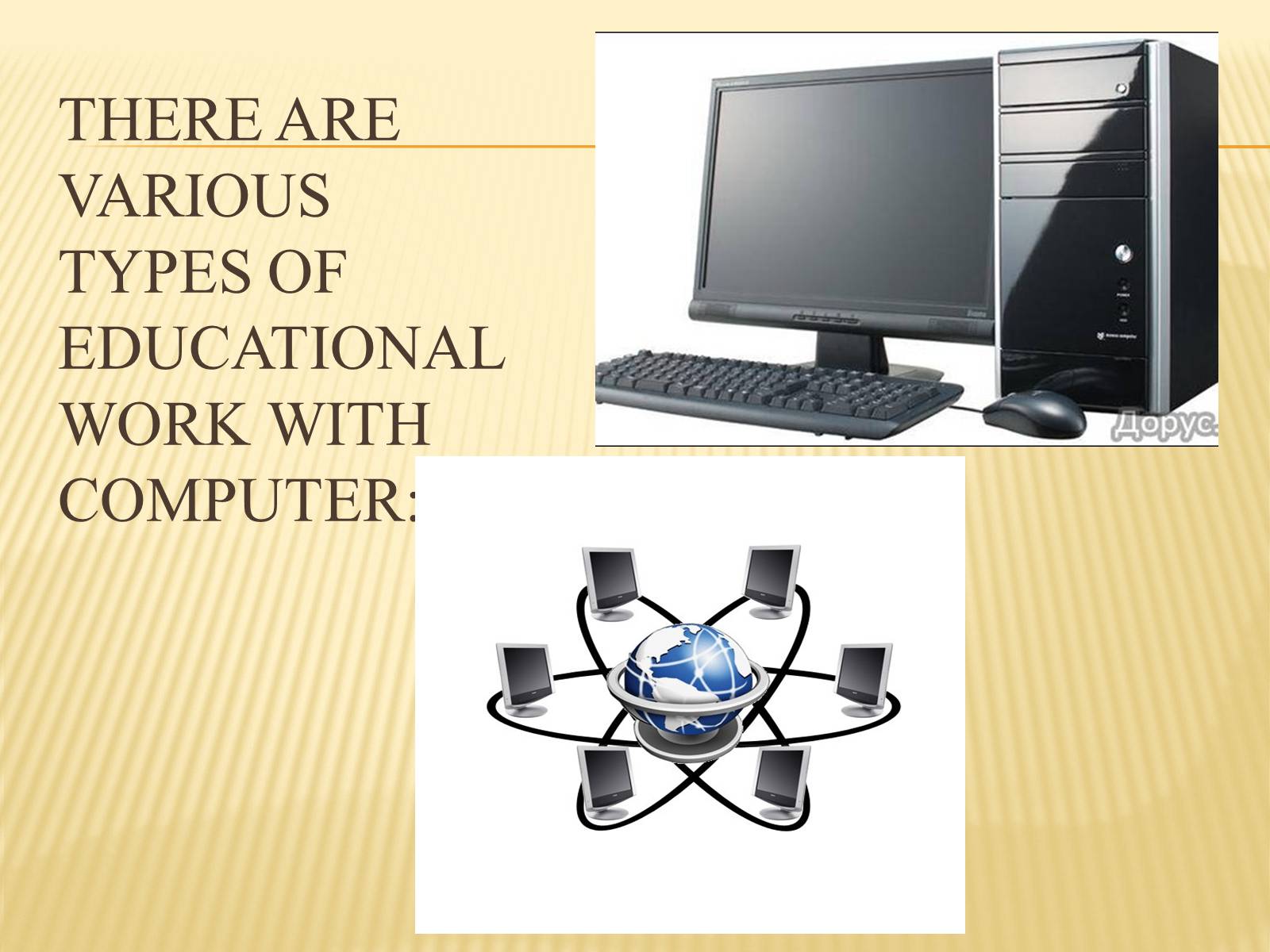
There are various types of educational work with computer:

It is used as a source of information;

The solution tests;

Work with e-book;
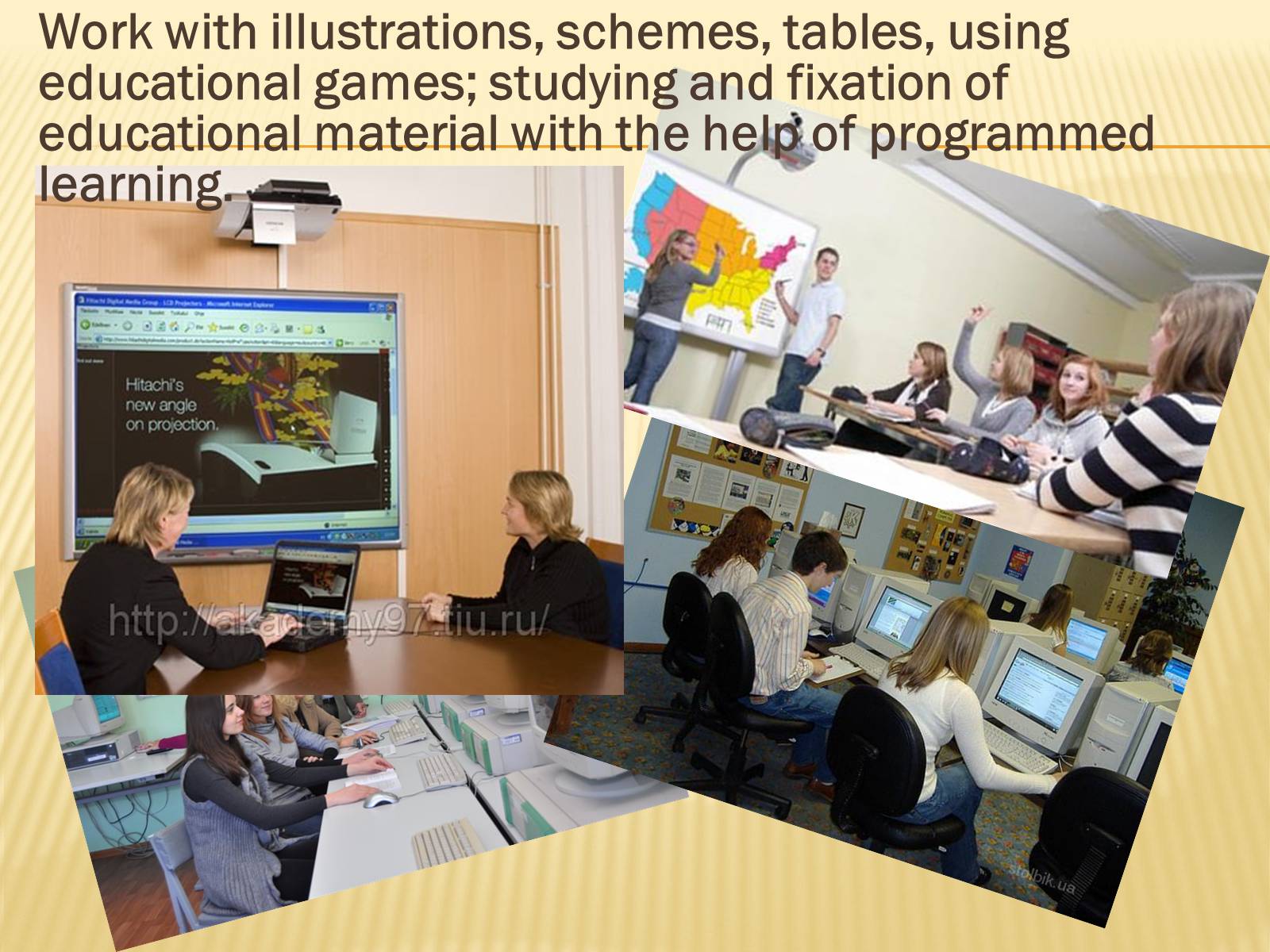
Work with illustrations, schemes, tables, using educational games; studying and fixation of educational material with the help of programmed learning.
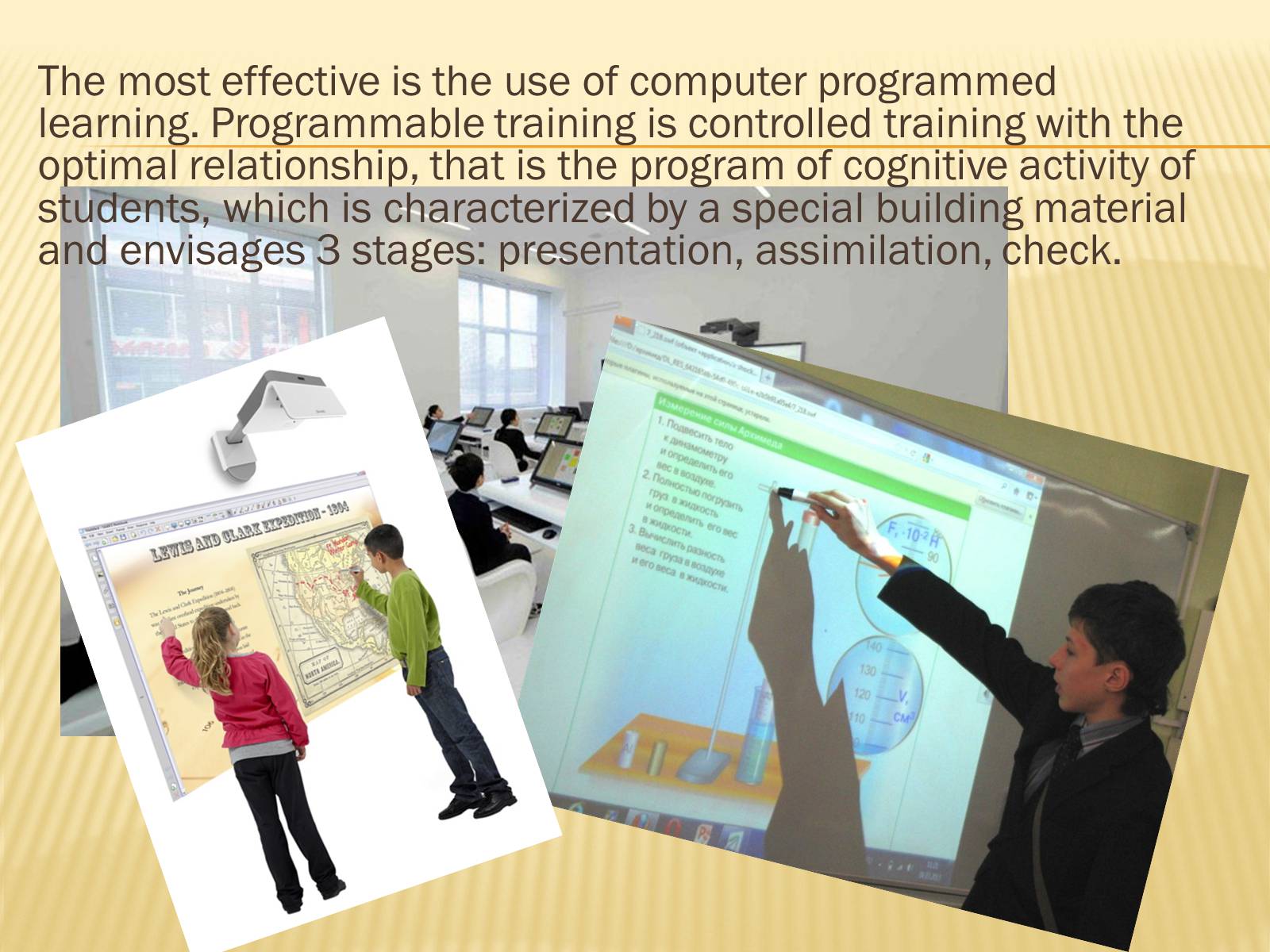
The most effective is the use of computer programmed learning. Programmable training is controlled training with the optimal relationship, that is the program of cognitive activity of students, which is characterized by a special building material and envisages 3 stages: presentation, assimilation, check.
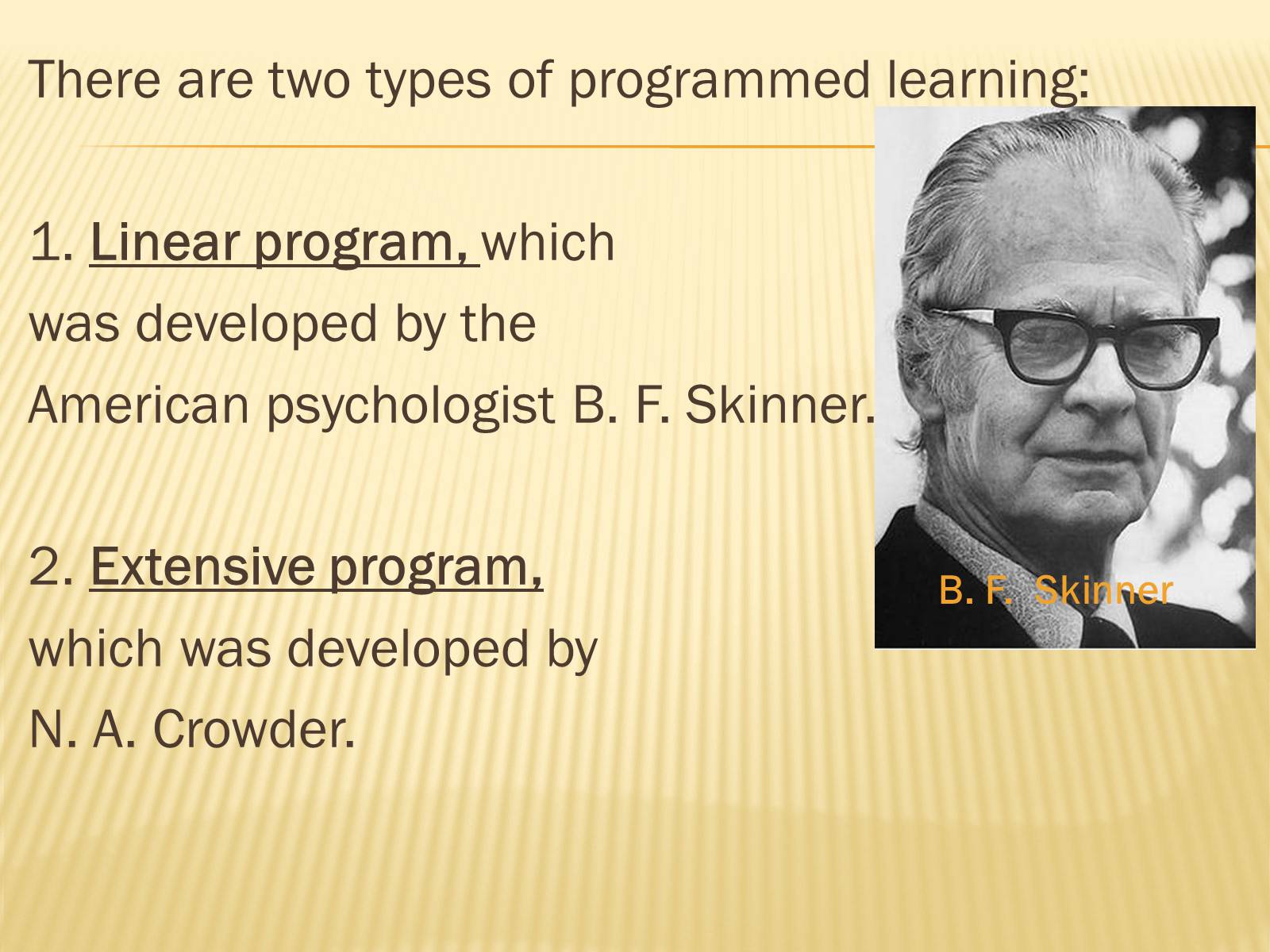
There are two types of programmed learning:
1. Linear program, which
was developed by the
American psychologist B. F. Skinner.
2. Extensive program,
which was developed by
N. A. Crowder.
B. F. Skinner
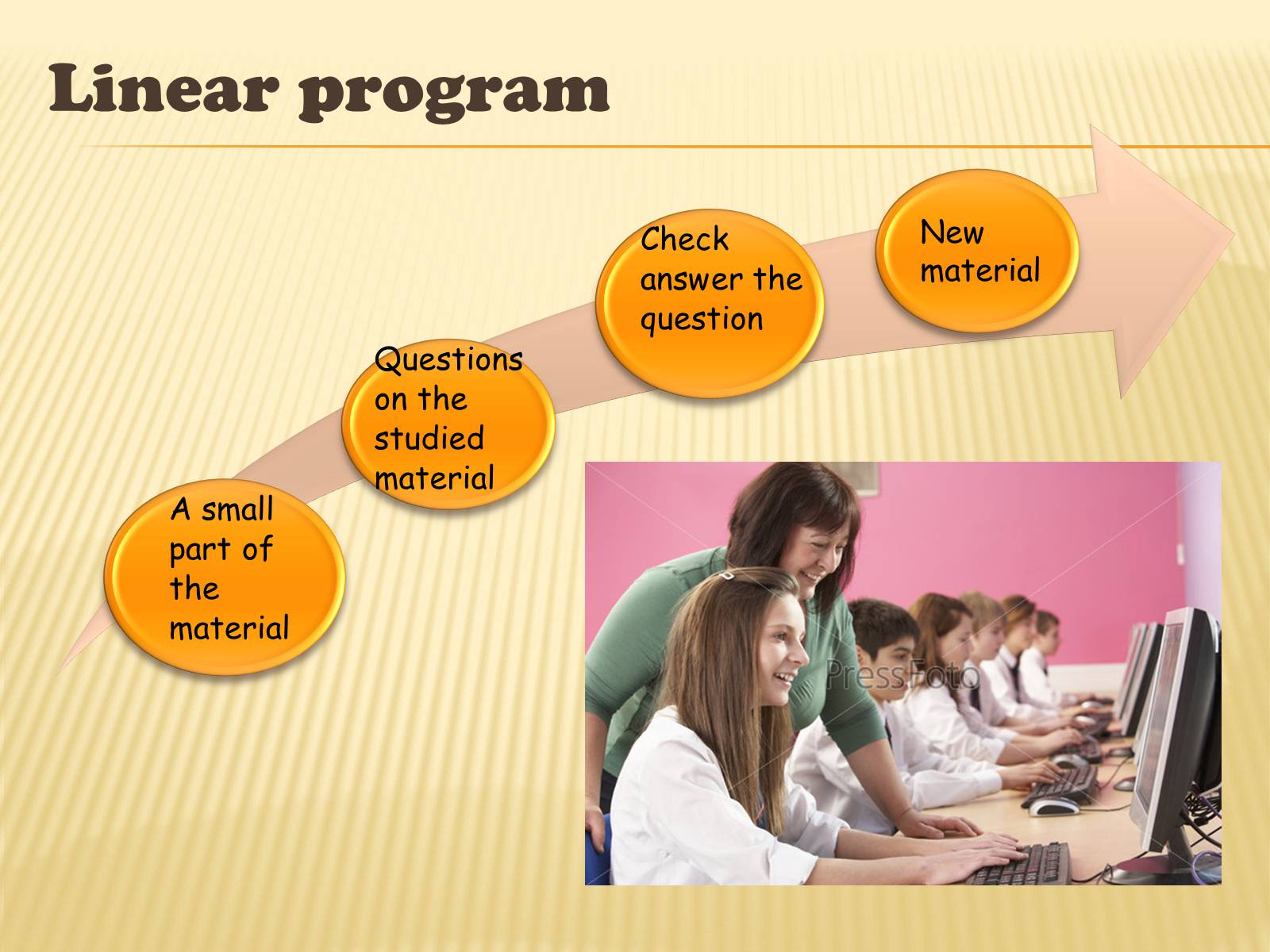
Linear program
New material
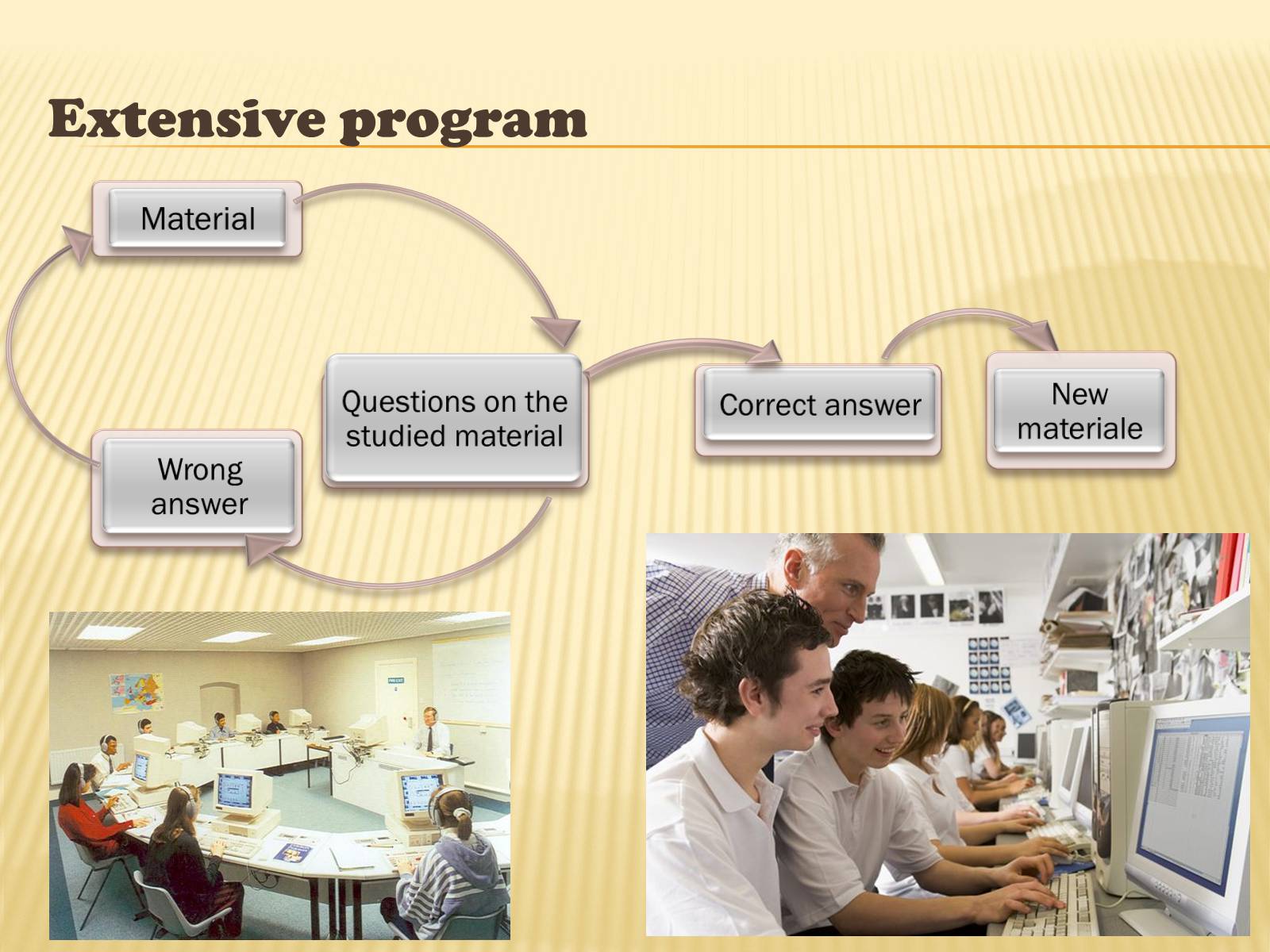
Extensive program
Material
Questions on the studied material
Wrong answer
Correct answer
New materiale
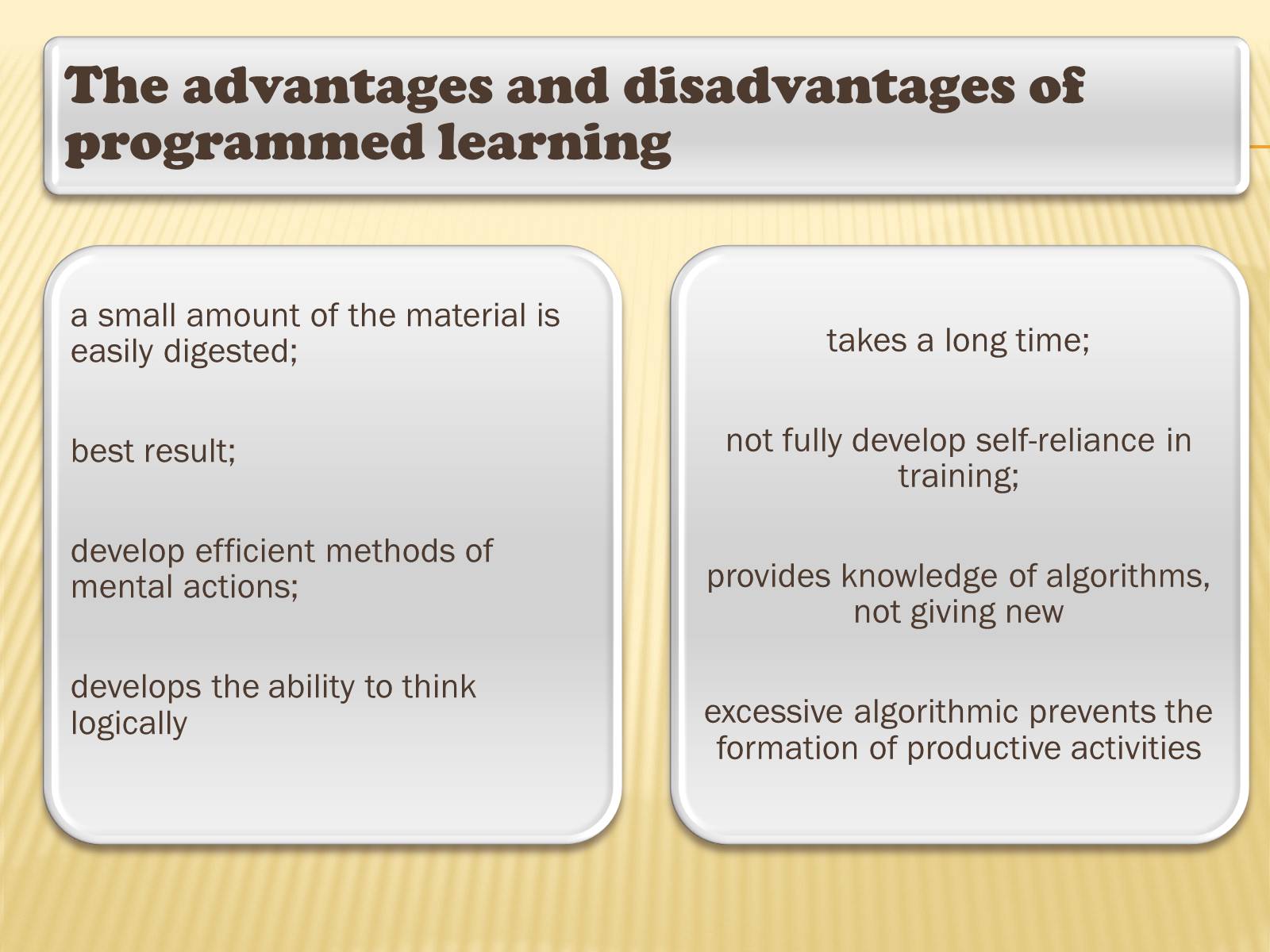
Extensive program
Material
Questions on the studied material
Wrong answer
Correct answer
New materiale
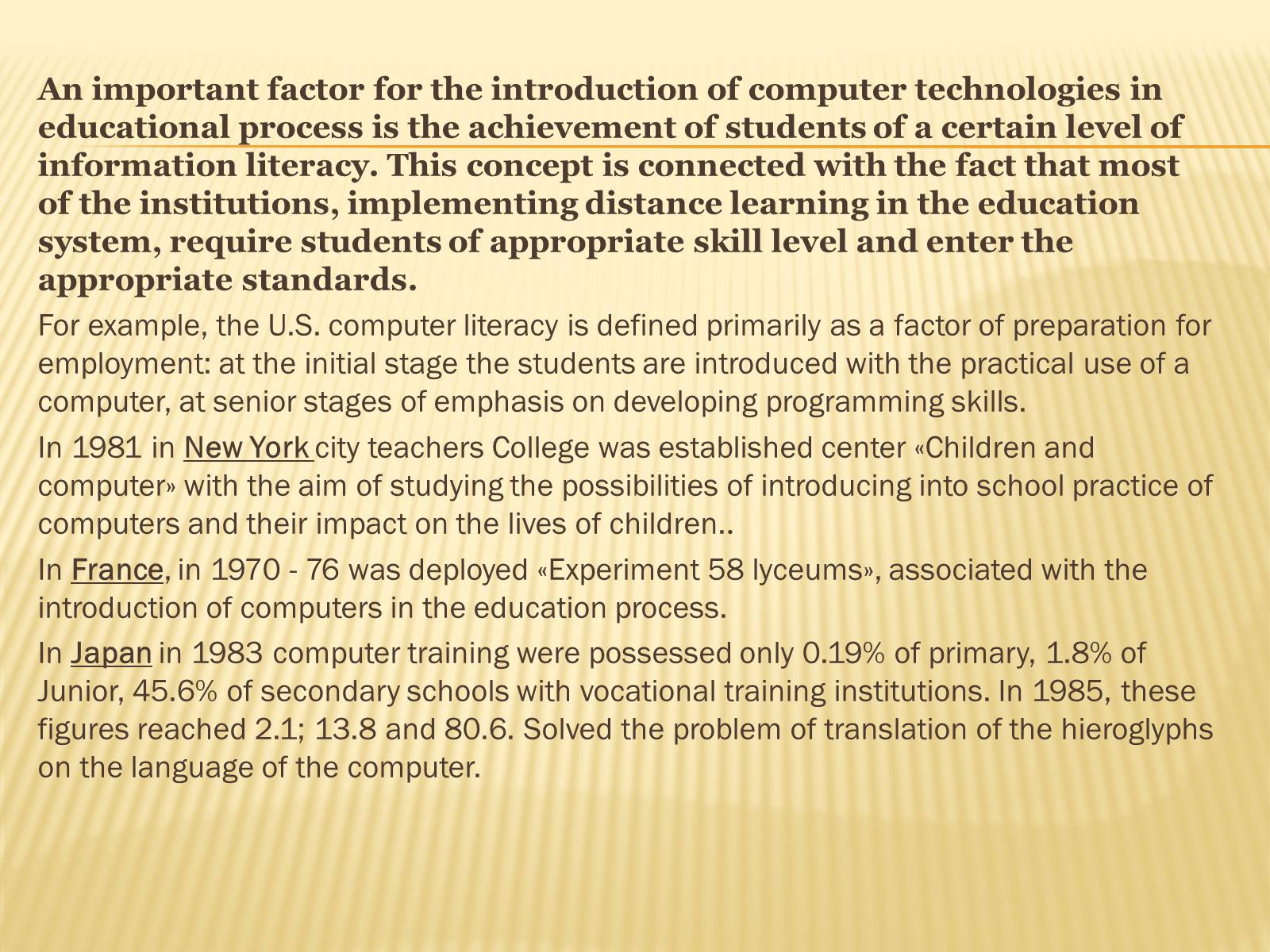
An important factor for the introduction of computer technologies in educational process is the achievement of students of a certain level of information literacy. This concept is connected with the fact that most of the institutions, implementing distance learning in the education system, require students of appropriate skill level and enter the appropriate standards.
For example, the U.S. computer literacy is defined primarily as a factor of preparation for employment: at the initial stage the students are introduced with the practical use of a computer, at senior stages of emphasis on developing programming skills.
In 1981 in New York city teachers College was established center «Children and computer» with the aim of studying the possibilities of introducing into school practice of computers and their impact on the lives of children..
In France, in 1970 - 76 was deployed «Experiment 58 lyceums», associated with the introduction of computers in the education process.
In Japan in 1983 computer training were possessed only 0.19% of primary, 1.8% of Junior, 45.6% of secondary schools with vocational training institutions. In 1985, these figures reached 2.1; 13.8 and 80.6. Solved the problem of translation of the hieroglyphs on the language of the computer.
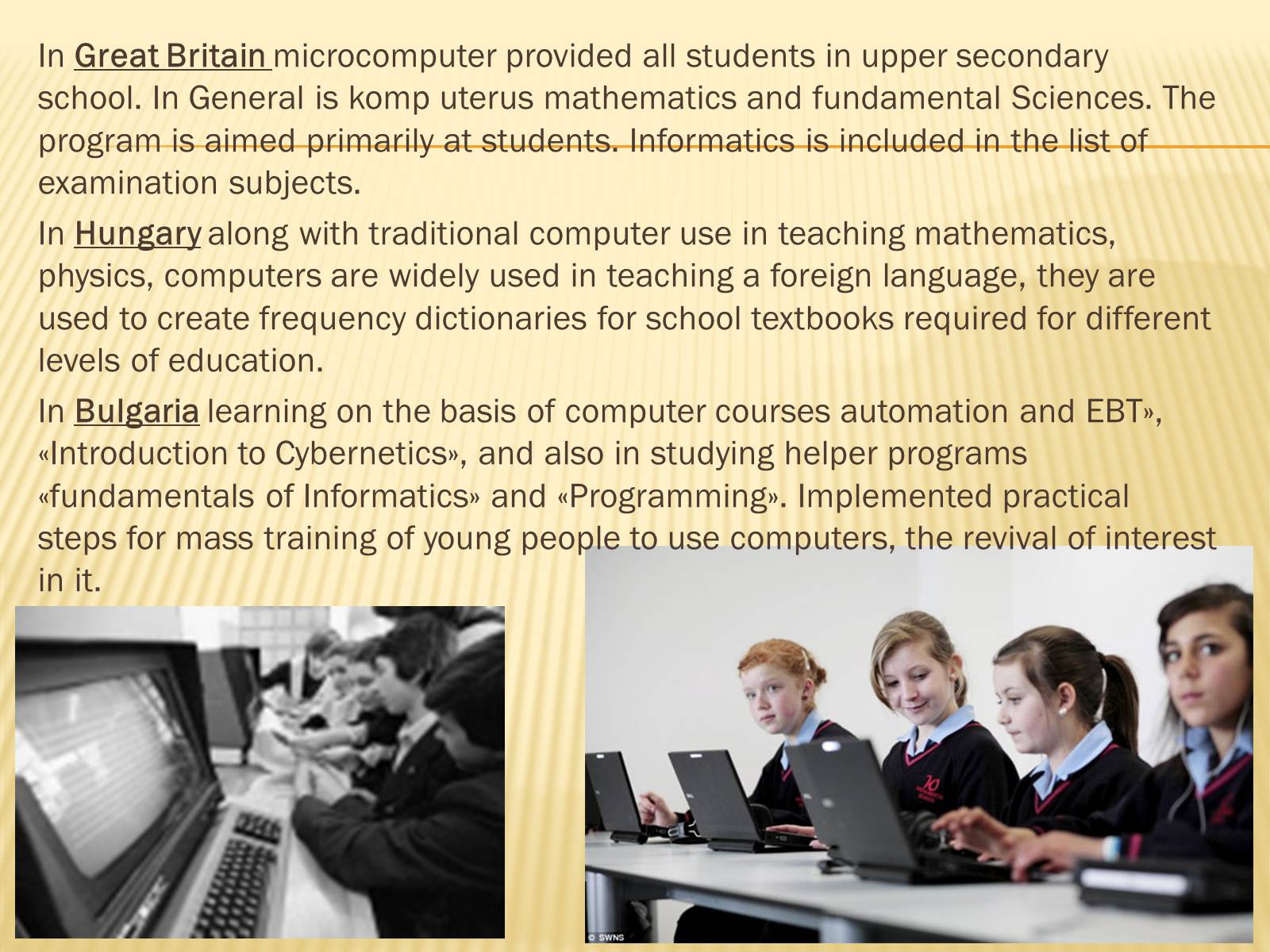
In Great Britain microcomputer provided all students in upper secondary school. In General is komp uterus mathematics and fundamental Sciences. The program is aimed primarily at students. Informatics is included in the list of examination subjects.
In Hungary along with traditional computer use in teaching mathematics, physics, computers are widely used in teaching a foreign language, they are used to create frequency dictionaries for school textbooks required for different levels of education.
In Bulgaria learning on the basis of computer courses automation and EBT», «Introduction to Cybernetics», and also in studying helper programs «fundamentals of Informatics» and «Programming». Implemented practical steps for mass training of young people to use computers, the revival of interest in it.
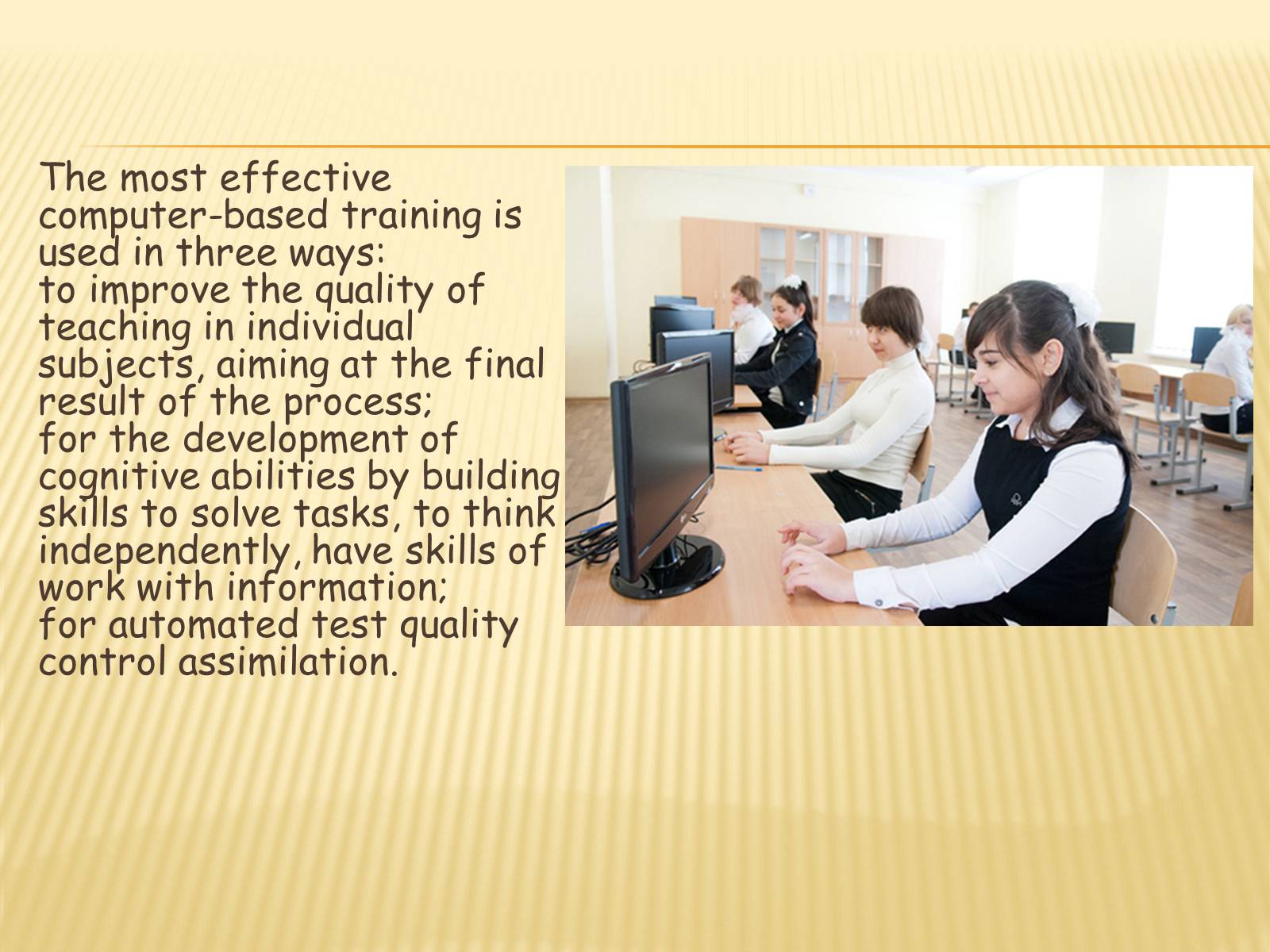
The most effective computer-based training is used in three ways:to improve the quality of teaching in individual subjects, aiming at the final result of the process;for the development of cognitive abilities by building skills to solve tasks, to think independently, have skills of work with information;for automated test quality control assimilation.
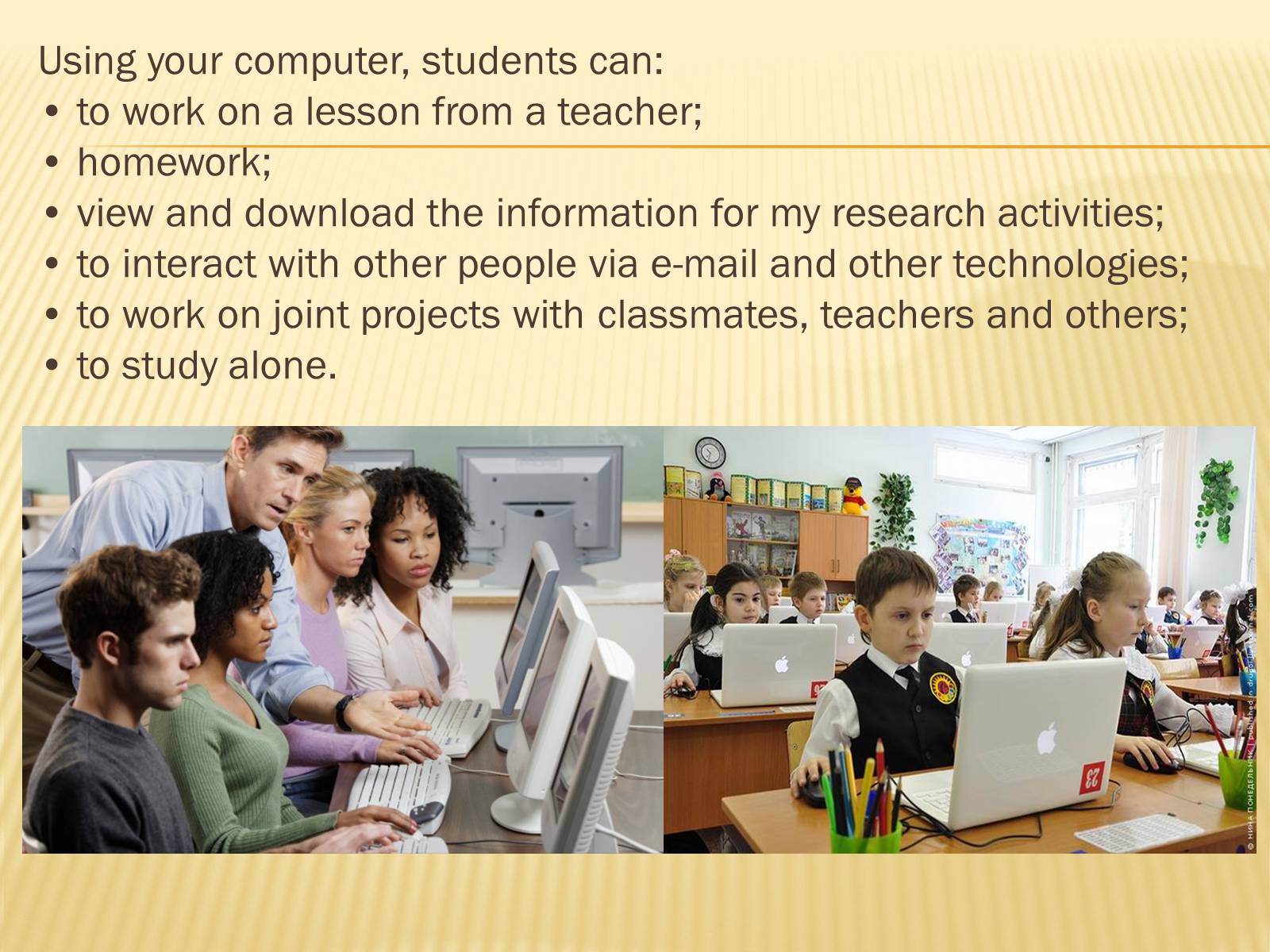
Using your computer, students can:• to work on a lesson from a teacher;• homework;• view and download the information for my research activities;• to interact with other people via e-mail and other technologies;• to work on joint projects with classmates, teachers and others;• to study alone.
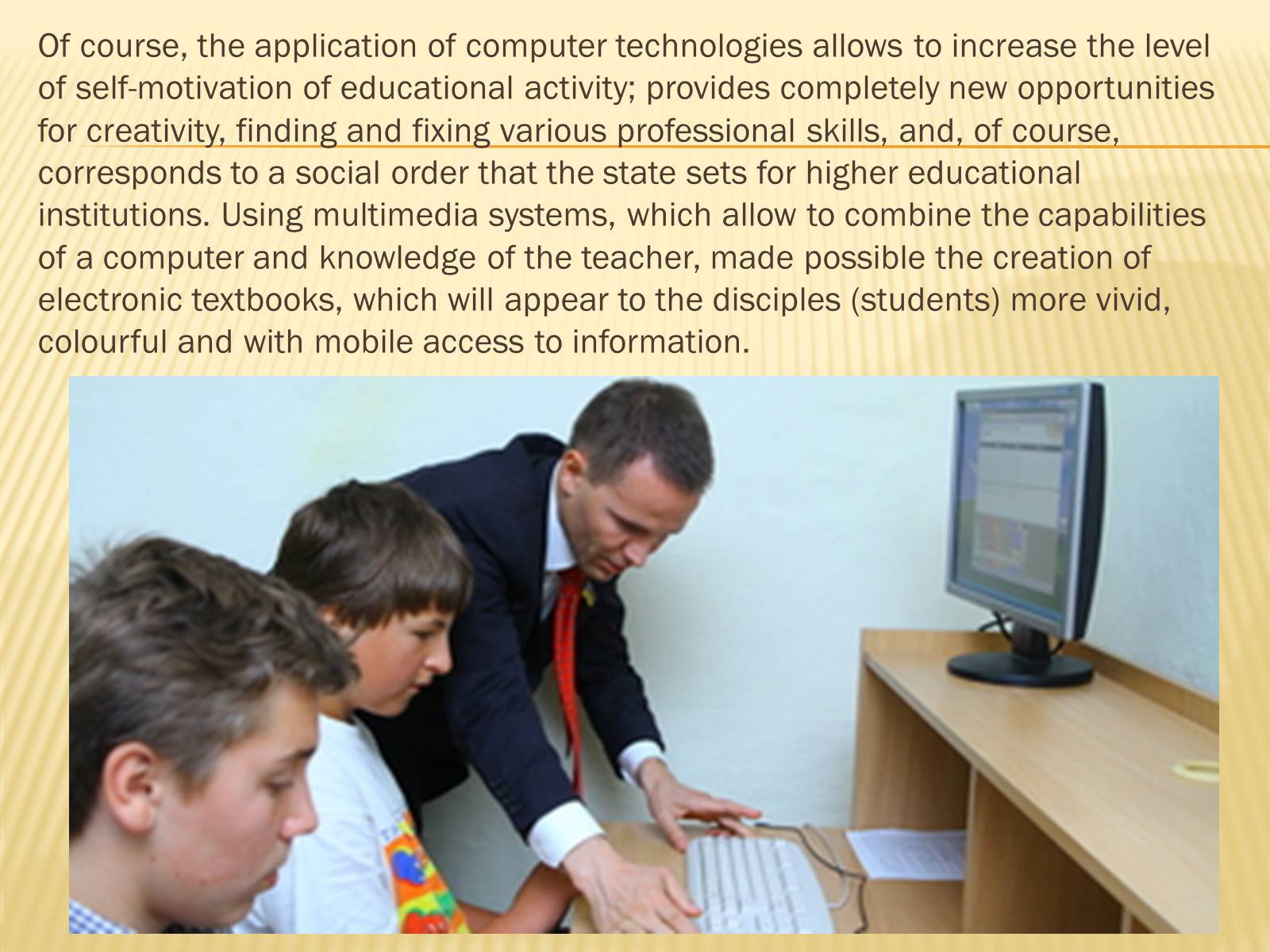
Of course, the application of computer technologies allows to increase the level of self-motivation of educational activity; provides completely new opportunities for creativity, finding and fixing various professional skills, and, of course, corresponds to a social order that the state sets for higher educational institutions. Using multimedia systems, which allow to combine the capabilities of a computer and knowledge of the teacher, made possible the creation of electronic textbooks, which will appear to the disciples (students) more vivid, colourful and with mobile access to information.
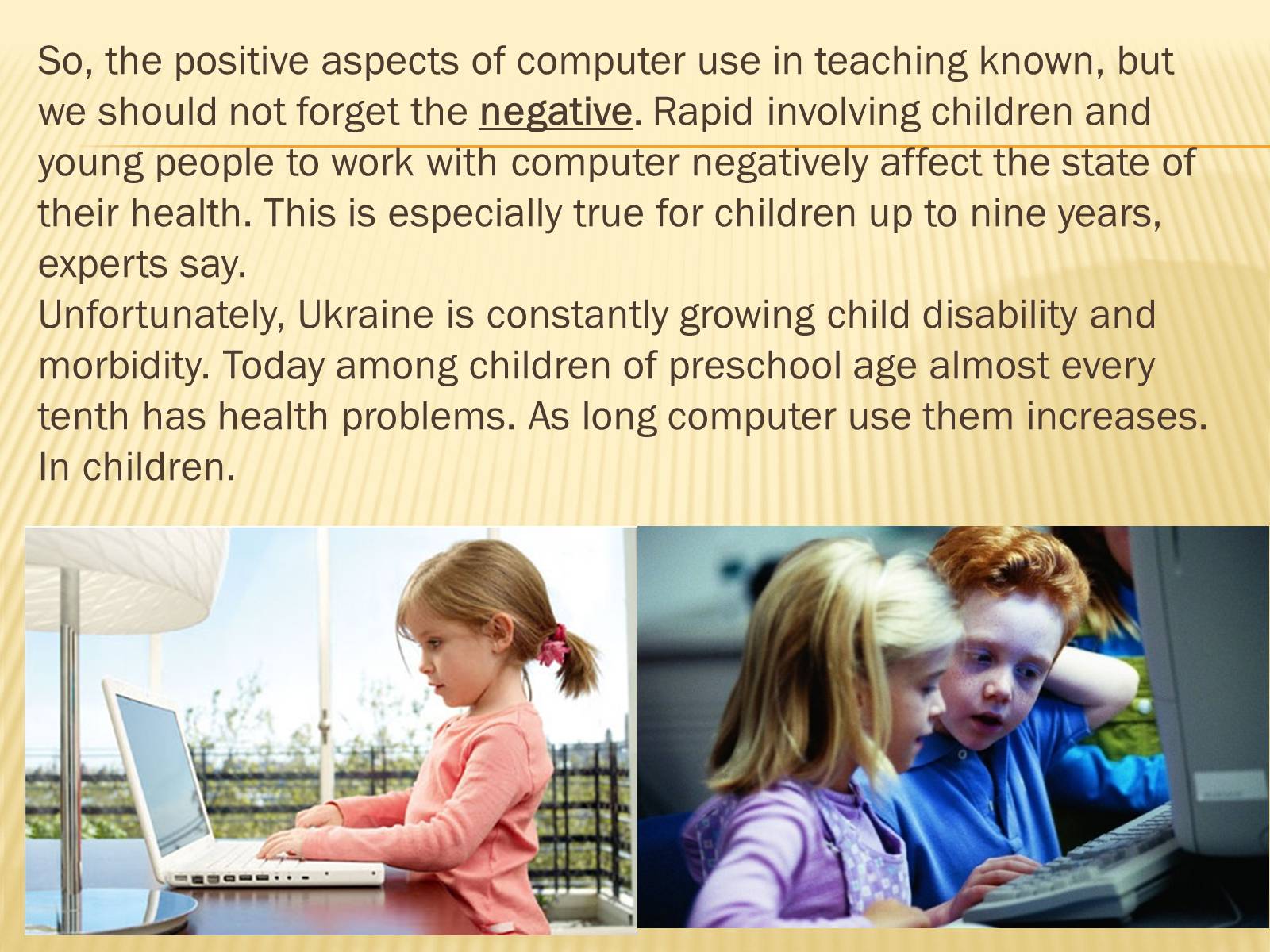
So, the positive aspects of computer use in teaching known, but we should not forget the negative. Rapid involving children and young people to work with computer negatively affect the state of their health. This is especially true for children up to nine years, experts say.Unfortunately, Ukraine is constantly growing child disability and morbidity. Today among children of preschool age almost every tenth has health problems. As long computer use them increases. In children.
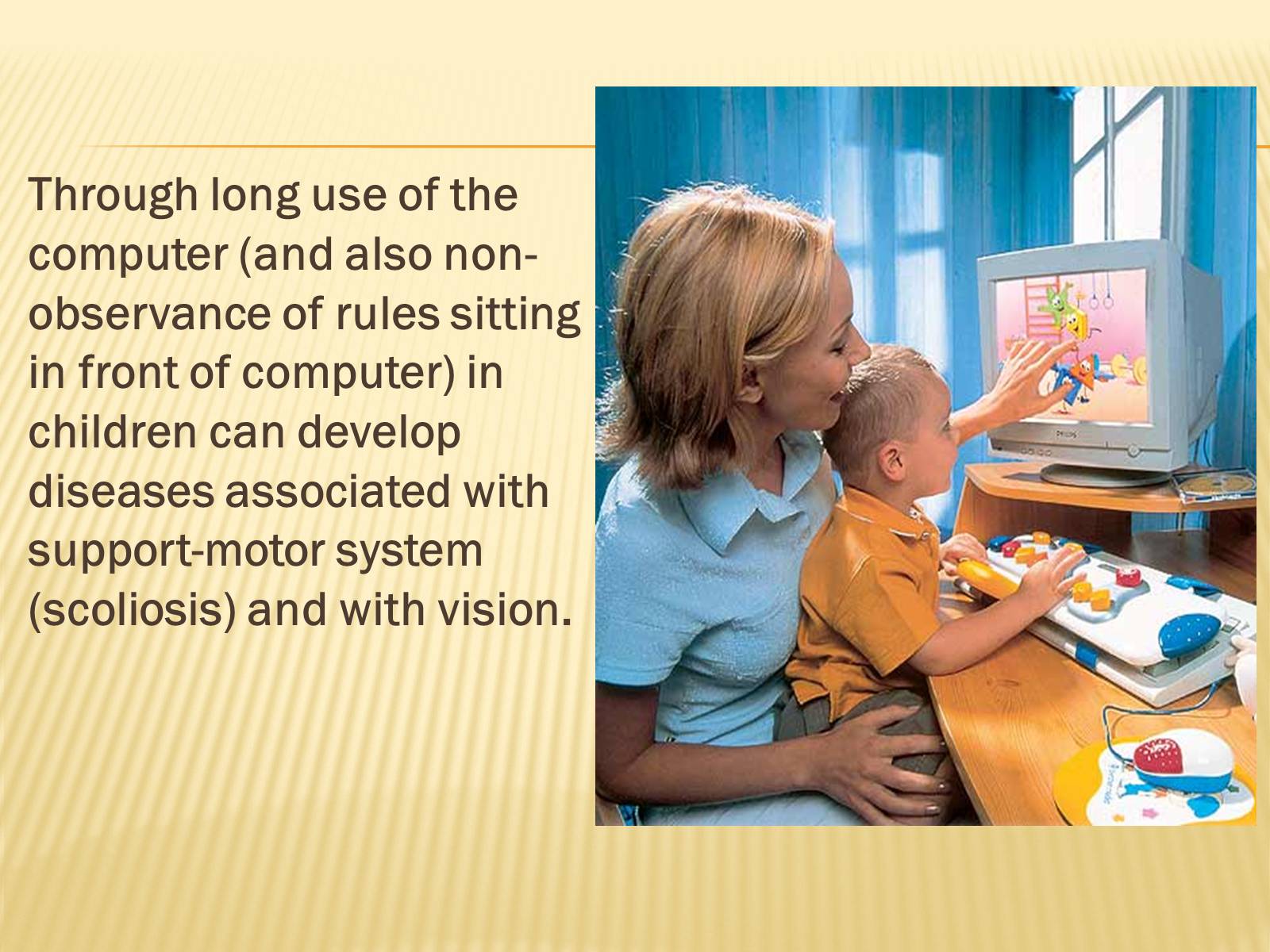
Through long use of the computer (and also non-observance of rules sitting in front of computer) in children can develop diseases associated with support-motor system (scoliosis) and with vision.
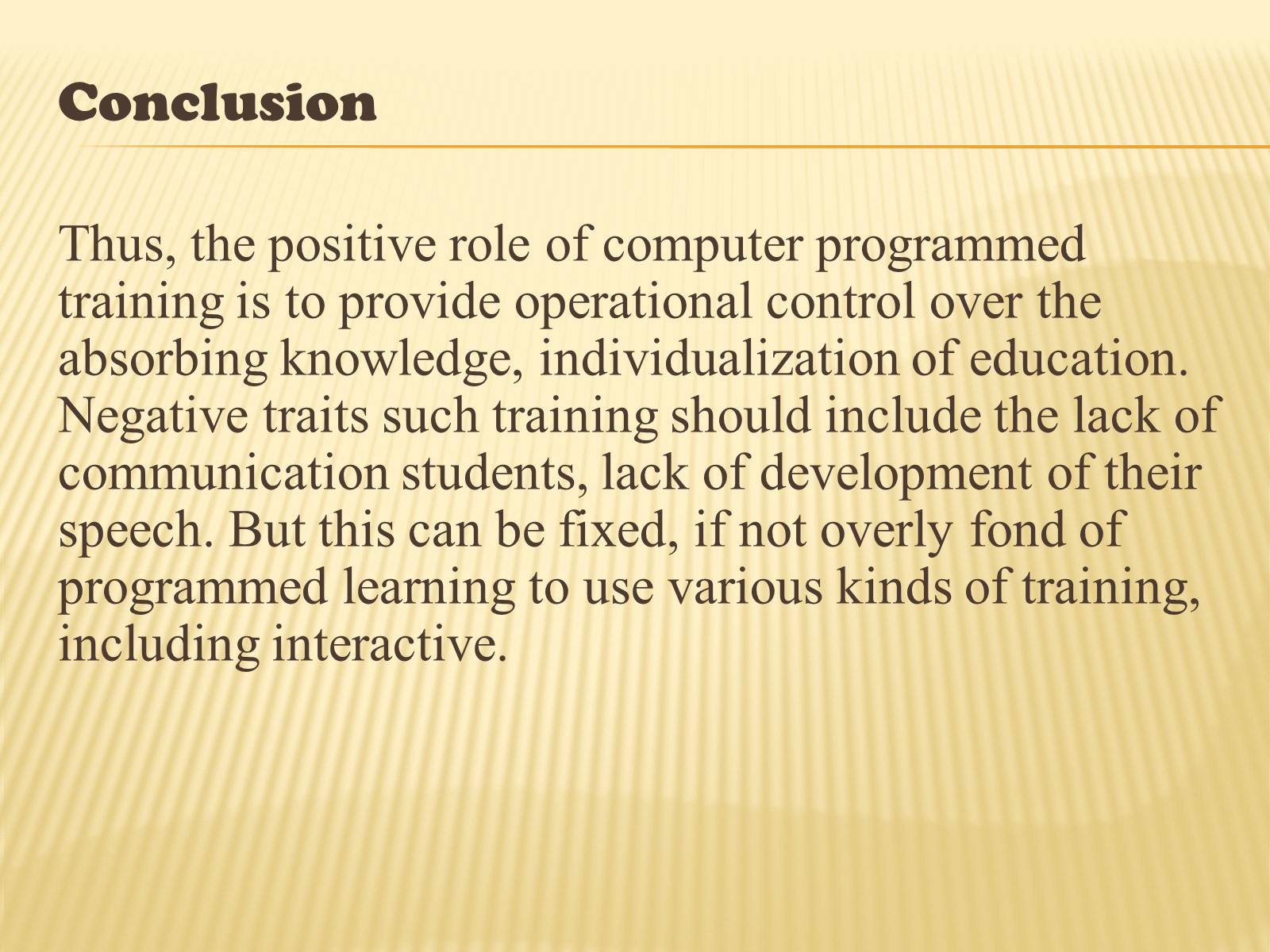
Conclusion
Thus, the positive role of computer programmed training is to provide operational control over the absorbing knowledge, individualization of education. Negative traits such training should include the lack of communication students, lack of development of their speech. But this can be fixed, if not overly fond of programmed learning to use various kinds of training, including interactive.